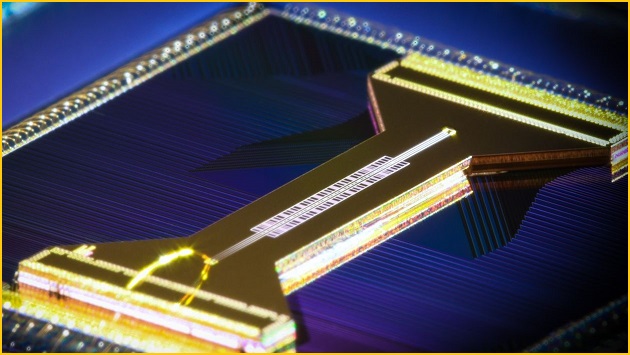Industrial technology conglomerate Honeywell claims to have built the most powerful quantum computer in the world.
The system will be available for use via the cloud by the middle of this year.
Honeywell CEO, Darius Adamczyk, told CNBC News the computer will have applications across a range of sectors.
“Material science, route optimisation, financial software […] Anything that really overwhelms a classic computer are perfect applications for a quantum computer given the computing power that’s available,” Adamczyk said.
“We’re using it internally for some of our material science research. The possibilities are endless and it’s going to open up whole new areas of research and dramatic reduction in research time to discover, for example, new molecules or to optimise travel routes.”
Financial services firm JP Morgan has already signed up to be the first public user of Honeywell’s computer when it comes online.
Along with the unveiling of its computer, Honeywell announced investments in quantum software and applications developers, Cambridge Quantum Computing (CQC) and Zapata Computing.
CEO of CQC, Ilyas Khan, said the partnership with Honeywell shows a growing commercial interest in quantum computing.
“The investment comes after a period of very close working cooperation, during which we have come to recognise the world-class leading quantum computer that Honeywell has developed,” Khan said.
“It may well be one of the technology world's best kept secrets for over a generation."
Late last year, Microsoft said that Honeywell would become part of its Azure cloud quantum stack.
Honeywell was somewhat of a surprise entry into the quantum computer game which is largely dominated by tech giants Google and IBM.
Recently the pair have been trading barbs over the nature of quantum supremacy – the point at which quantum computers are advanced enough to complete tasks that would take classical computers millennia to compute.
Unlike Google and IBM’s quantum offerings – which work using superconducting processors – Honeywell has tackled the engineering side of quantum computing differently.
Its computer uses a trapped-ion quantum charge-coupled device architecture that involves trapping charged atoms (ions) inside crystals in order to interact with their quantum states.
Honeywell claims its design has the highest ‘quantum volume’ of any computer, despite having fewer qubits (only six; Google’s Sycamore processor has 54).
Quantum volume is a benchmark of quantum computers used to determine their relative power.
It is measured by running random circuits and comparing the output’s reliability with a classical simulation of the same quantum circuits.
Like Google and IBM, Honeywell’s quantum computer will have a close relationship with classical computers creating a kind of hybrid system where the high-powered quantum components are accessed via the cloud.










